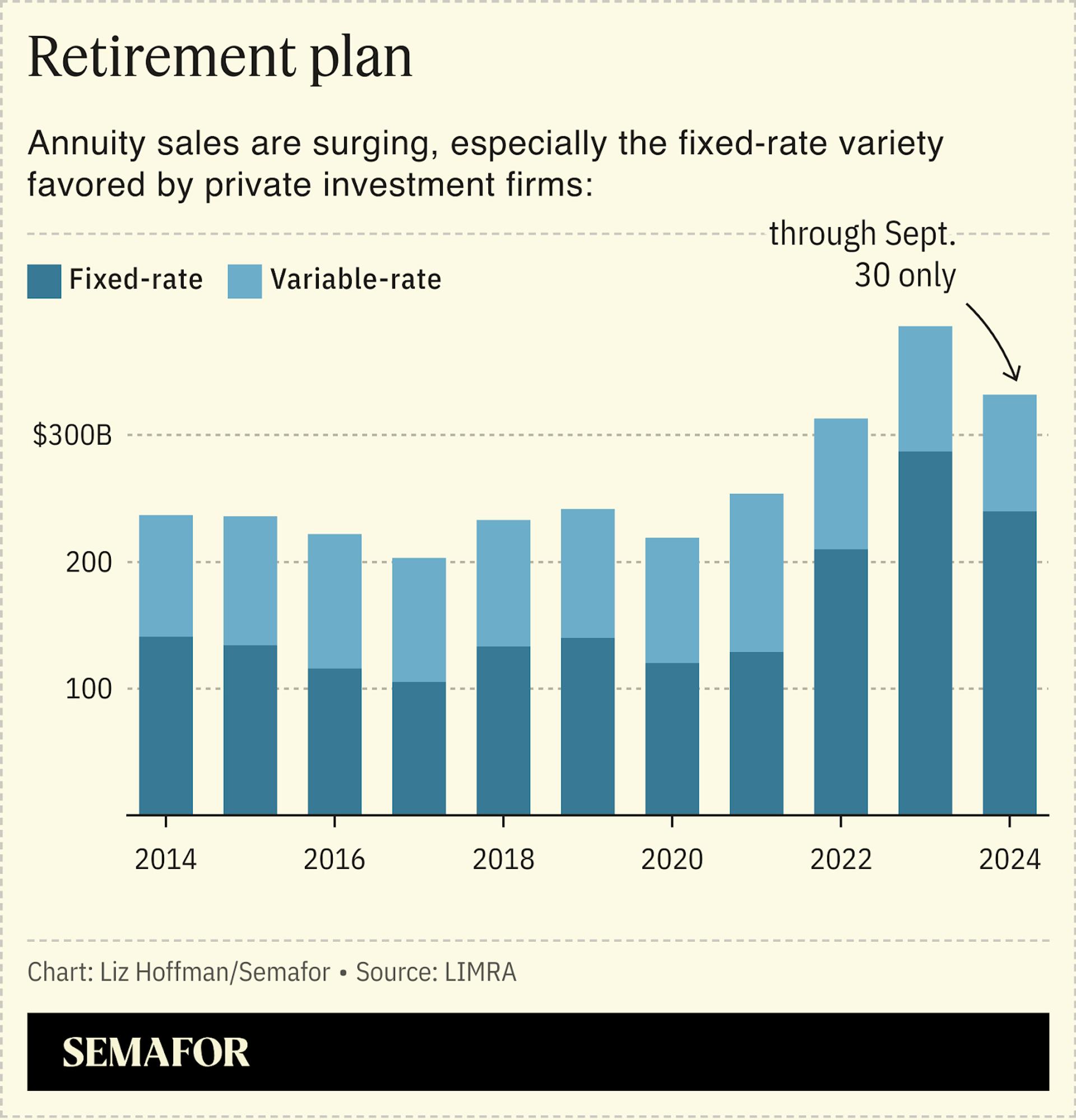Life insurance policies and annuities — which are contracts that promise retirees a fixed income in the future — have become the hottest corner on Wall Street. The cash they generate through premiums that won’t be paid out for decades, until policyholders retire or die, are an attractive money source for dealmaking. Apollo, Blackstone, KKR, Brookfield, and other investment firms have all gotten into insurance, and rivals that don’t yet have an insurance arm are scrambling to buy one.

These firms are betting that they can invest policyholders’ money more profitably than traditional insurers, which generally favored blue-chip corporate bonds and other sleepy investments. They have, in most cases, replaced those vanilla assets with private loans, often backed by things like plane leases and consumer layaway purchases.
“I think insurance companies over the last two decades really blew it because they got out of investing,” Anant Bhalla, JAB’s chief investment officer, said at the Semafor Business Summit in June. “So who stepped in? The people are very good at it. Alternative asset managers.” (You can watch his entire interview here.)
Critics, meanwhile, warn that higher profits mean higher risks and have sounded alarms about Wall Street gambling with Americans’ retirements.
TPG, which remains on the hunt for an insurance acquisition or partner, has picked up $3.5 billion from independent insurers since acquiring a private-credit arm, Angelo Gordon, last year, CEO Jon Winkelried said at an investor conference last week.
“Not surprisingly, we’re now involved in conversations with very established large insurance companies who are coming to us saying, ‘Look, it would be interesting for us to figure out whether or not we can do business together, whether we can establish some relationship,’” he said.




